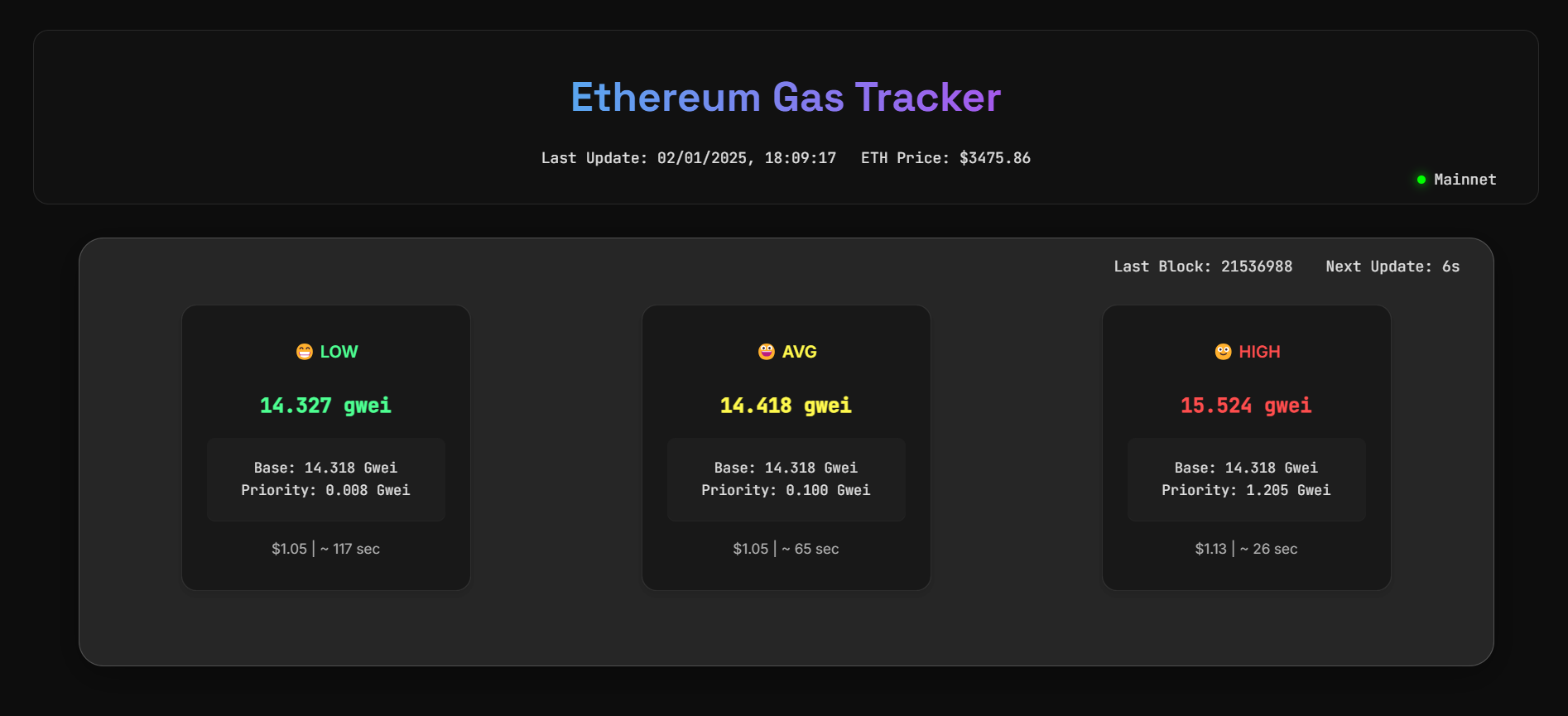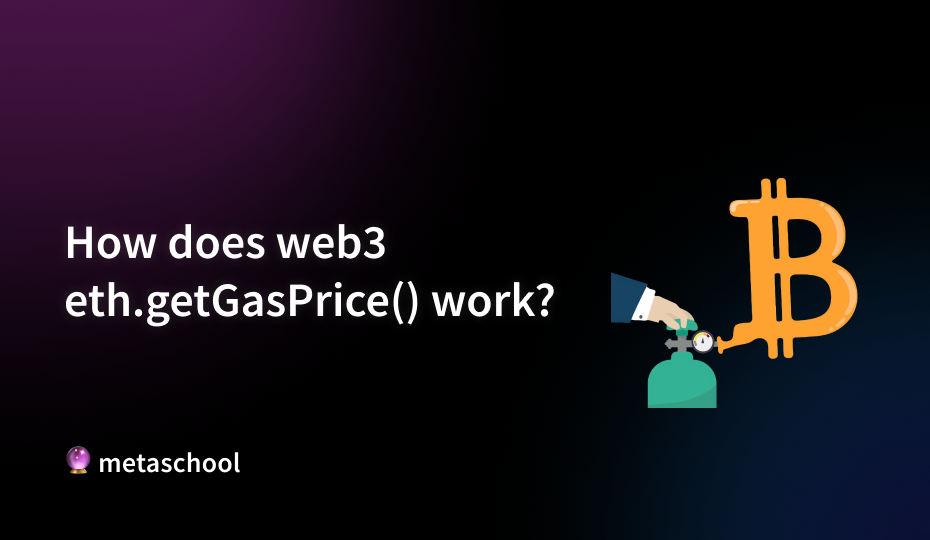Table of Contents
web3.eth.getGasPrice() is a function provided by the web3.js library, which is a JavaScript library that allows you to interact with the Ethereum blockchain using a web3 provider (such as an Ethereum node).
What is Web3.js?
Web3.js is a powerful, open-source JavaScript library that essentially functions as the bridge between decentralized applications (dApps) and the Ethereum blockchain. It enables developers to interact with Ethereum nodes using HTTP, IPC, or WebSocket connections, which allows for a range of functionalities—from querying blockchain data and sending transactions to interacting with smart contracts.
By abstracting complex blockchain protocols into simple, developer-friendly methods, Web3.js simplifies the process of building and integrating dApps. With robust documentation and a supportive community, it is a go-to tool for anyone looking to develop applications that leverage Ethereum’s decentralized network, making blockchain interactions more accessible and efficient.
Different Aspects of the Process
1. Determination of gas price
Gas price is determined by the Ethereum network and is based on supply and demand. When there are more transactions than available block space, the gas price goes up. When there is more block space than transactions, the gas price goes down. Gas price is set by the Ethereum miners and they can choose to mine transactions with higher gas prices first because they will be more profitable.
2. Gas limit
Each transaction on the Ethereum network requires a certain amount of gas. Gas is used to pay for the computational resources used to process a transaction or execute a smart contract. The web3.eth.getGasPrice() function returns the price of one unit of gas in wei. The total cost of a transaction is the gas price multiplied by the gas limit.
3. Wei unit
web3.eth.getGasPrice() returns the current gas price in wei, which is the smallest unit of ether. It is important to note that the gas price is returned in wei because the gas limit is also expressed in wei. The gas price is set by the Ethereum network and is used to determine how much Ether a user needs to spend in order to execute a given transaction on the Ethereum blockchain. The higher the gas price, the more priority a transaction is given by miners when it is included in a block.
4. Nonce
Nonce is a number that is unique per account. It is incremented with every transaction from an account. web3.eth.getGasPrice() does not take into account the nonce, it only returns the current gas price.
5. Network dependent
The gas price returned by web3.eth.getGasPrice() is dependent on the network you are connected to via the web3 provider. If you are connected to the Ethereum mainnet, you will get the gas price for the mainnet. If you are connected to a testnet, you will get the gas price for that testnet.
It is worth noting that the returned promise from web3.eth.getGasPrice() will resolve to a string representing the gas price in wei. If you need to convert it to Gwei (another unit of gas) or ether, you can use the web3.utils.fromWei() function.
How you can use web3.eth.gasPrice()
This is an example in JavaScript:
const Web3 = require('web3');
const web3 = new Web3(new Web3.providers.HttpProvider("https://mainnet.infura.io/v3/YOUR-PROJECT-ID"));
web3.eth.getGasPrice().then(console.log);
In the example above, we first import the web3.js library and create a new instance of the web3 object, which is configured to connect to the Ethereum mainnet using an Infura node.
Then we call the web3.eth.getGasPrice() function, which returns a promise that resolves to the current gas price in wei. Finally, we log the gas price to the console.
In this example, The HttpProvider is connecting to the Ethereum node via HTTP and therefore can access the JSON-RPC API of the node.
Please keep in mind, this is a simple and general example and the actual implementation can be more complex and might differ according to use case.
Use of web3.eth.gasPrice() in a more complete use case
Let’s say you have a simple smart contract that allows users to transfer ether to other users. You want to create a front-end application that lets users interact with this contract using JavaScript.
Here’s some example code that demonstrates how you might use web3.eth.gasPrice() when calling the transfer() function of the contract.
const Web3 = require('web3');
const web3 = new Web3(new Web3.providers.HttpProvider("https://mainnet.infura.io/v3/YOUR-PROJECT-ID"));
const contractAddress = "0x..."; // address of the deployed smart contract
const contractAbi = [/* ABI of the contract */];
const contract = new web3.eth.Contract(contractAbi, contractAddress);
const fromAddress = "0x..."; // address of the sender
const privateKey = "0x..."; // private key of the sender
const toAddress = "0x..."; // address of the recipient
const amount = "1"; // amount of ether to send
// Get the current gas price in wei
web3.eth.getGasPrice().then(gasPrice => {
// Estimate the gas needed for the transfer transaction
contract.methods.transfer(toAddress, web3.utils.toWei(amount, 'ether')).estimateGas({from: fromAddress}).then(estimatedGas => {
// Build the raw transaction
const rawTransaction = {
"from": fromAddress,
"to": contractAddress,
"value": "0x0",
"gasPrice": web3.utils.toHex(gasPrice),
"gas": web3.utils.toHex(estimatedGas),
"data": contract.methods.transfer(toAddress, web3.utils.toWei(amount, 'ether')).encodeABI()
};
// Sign and send the transaction
web3.eth.accounts.signTransaction(rawTransaction, privateKey).then(signedTransaction => {
web3.eth.sendSignedTransaction(signedTransaction.rawTransaction).then(console.log);
});
});
});
Step 1.
In this example, we first create a new instance of the web3 object and connect it to the Ethereum mainnet using an Infura node. Then we create a new instance of the contract object using the ABI and address of the deployed contract.
Step 2.
After that, we define the addresses, private key and the amount of ether to be transferred.
Step 3.
Then we call web3.eth.getGasPrice() to get the current gas price in wei. We pass the gas price, the address to be transferred to, the amount of ether and the address of the sender, to the contract.methods.transfer(toAddress, web3.utils.toWei(amount, 'ether')).estimateGas({from: fromAddress}) to estimate the gas required for the transaction.
Step 4.
After that we can now build the rawTransaction object, where we put all the details required by Ethereum to execute the transaction.
Step 5.
Finally, we can sign the transaction using the private key of the sender and send it using web3.eth.sendSignedTransaction(signedTransaction.rawTransaction) which returns the transaction receipt and logs it to the console.
We have covered the basic flow of using web3.eth.getGasPrice() in a more complete use case. But here are some further notes.
⚡️ Additional notes that might be useful to you
Keep in mind that the above example is simplified and doesn’t include any error handling or input validation. In a real-world application, you should always handle errors and validate user inputs to ensure that the transactions are executed as expected.
Also, keep in mind that this example is for sending transactions on the Ethereum mainnet which incurs real cost, and testnet should be used for testing.
The returned promise from web3.eth.getGasPrice() will resolve to a string representing the gas price in wei. If you need to convert it to Gwei (another unit of gas) or ether, you can use the web3.utils.fromWei() function.
The estimateGas() method returns the estimated gas cost of the given transaction in the form of a promise, which can be useful to make sure that you set the gas limit for the transaction correctly, otherwise the transaction will fail.
web3.eth.accounts.signTransaction(rawTransaction, privateKey) method will sign the transaction using the private key and returns a promise that will resolve to a SignedTransaction object that you can use to send the transaction via web3.eth.sendSignedTransaction(signedTransaction.rawTransaction).
The web3.eth.sendSignedTransaction() method returns a promise that will resolve to the transaction receipt object which contains the details of the executed transaction.
Track Ethereum Gas Prices in Real-Time with Metaschool’s Gas Tracker
Use Metaschool’s Gas Tracker to keep an eye on gas prices in real time across multiple blockchain networks. This tool helps developers and users make informed decisions when interacting with the blockchain by giving them the most recent data on gas prices, transaction fees, and network congestion levels. You can improve the efficiency of your decentralized applications (dApps) by optimizing transaction costs and timing by being aware of current gas prices.
Create Your Own Gas Price Tracker
Metaschool offers an open-source Ethereum Gas Tracker template, enabling developers to create real-time gas tracking platforms with ease. Built using React.js for the frontend, Node.js for the backend, and integrating the Etherscan API for blockchain data, this template provides a responsive and SEO-optimized solution for monitoring Ethereum gas prices.
Key Features:
- Responsive Design: Ensures optimal performance across various devices and screen sizes.
- Real-Time Gas Prices: Displays current gas prices categorized into low, average, and high tiers.
- Transaction Cost Estimation: Calculates costs for common Ethereum transactions, aiding users in financial planning.
- Gas Trends Graphs: Visualizes gas price trends over the past hour and 24 hours, assisting in strategic decision-making.
For a live demonstration, visit the Ethereum Gas Tracker Demo.

This template serves as an excellent starting point for developers aiming to build efficient and user-friendly Ethereum gas tracking applications. For more details and to access the source code, visit the Ethereum Gas Tracker AI Template.
